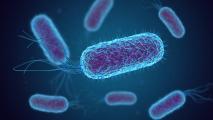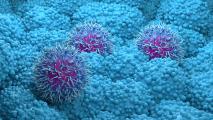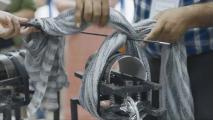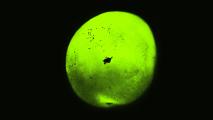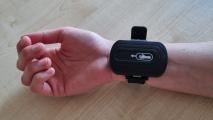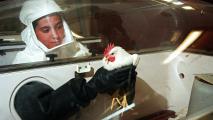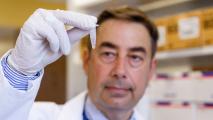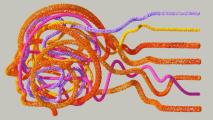
Biotech
Human history has been all but defined by death and disease, plague and pandemic. Advancements in 20th century medicine changed all of that. Now advancements in 21st century medicine promise to go even further. Could we bring about an end to disease? Reverse aging? Give hearing to the deaf and sight to the blind? The answer may be yes. And soon.
More
Saliva: The next frontier in cancer detection
Scientists are finding tumor signals in spit that could be key to developing diagnostic tests for various types of cancer
Have scientists found a “brake pedal” for aging?
A new protein discovery may have highlighted a “switch” in brain cells that slows down inflammation and aging.
Harvard geneticists create an organism that is immune to all viruses
Researchers at the Harvard lab of George Church have genetically engineered E. coli resistant to viral infection.
Spread of deadly cancer delayed by organ transplant drug
A groundbreaking discovery on how pancreatic cancer spreads could lead to better therapies for the hard-to-treat disease.
How low-cost surgical training programs could save lives in low-resource countries
Lack of access to surgery leads to millions of deaths every year around the world. Meet the innovators who are working to reduce this toll.
New CRISPR tool reversed blindness in mice — permanently
A new CRISPR tool corrected a mutation causing retinitis pigmentosa in mice without making any significant off-target edits.
Wristband device helps to control Tourette’s tics in clinical trial
A new wrist-worn device from the University of Nottingham uses electrical pulses to help curb Tourette syndrome symptoms.
Bird flu is everywhere. Are the vaccines ready?
As avian influenza continues to devastate the bird population and jump into mammals, scientists are preparing to protect two important groups.
Mice grow mini deer antlers after stem cell transplant
The discovery of a new type of stem cell in deer antlers could lead to breakthroughs in human regeneration.
What that study linking sugar-free sweeteners and heart disease really tells us
A new study links higher blood levels of sugar-free sweeteners, commonly found in ketogenic diet foods, to a greater risk of death.
The case for viewing depression as a consciousness disorder
A new hypothesis explains depression as an altered state of consciousness, which could help researchers make an objective diagnostic test.
There is now a blood test for anxiety disorders
A new blood test for anxiety may be able to help doctors diagnose patients and find effective treatments for them more quickly.
Large language models are biased. Can logic help save them?
MIT researchers trained logic-aware language models to reduce harmful stereotypes like gender and racial biases.
As bird flu spreads in the US and worldwide, what’s the risk that it could start a human pandemic?
Many virologists are concerned that the latest bird flu outbreak could spill over to humans and cause a new human pandemic.
This easy fix could eliminate harmful chemical exhaust from home heaters
Retrofitting gas heaters with this catalyst could slash their environmental impact.
First ever therapy for rare genetic disorder now approved
The FDA has approved the first drug for Rett syndrome, a genetic neurodevelopmental disorder, which disproportionately affects women and girls.
AI isn’t close to becoming sentient, we just think it is
To what extent will our psychological vulnerabilities shape our interactions with emerging technologies? AI will be the test.
Making electricity from wastewater
Researchers have developed a “sandwich-like” membrane that removes pollutants while generating power.
Pfizer’s nasal spray for migraines is heading to pharmacies
The FDA has approved Pfizer’s zavegepant, a nasal spray for migraines that can ease pain in as few as 15 minutes.
Psychedelics open a new window on the mechanisms of perception
Some neuroscientists think psychedelics and the hallucinations they induce could help reveal how we generate our perceptions of the world.
Get inspired with the most innovative stories shaping the world around us.















